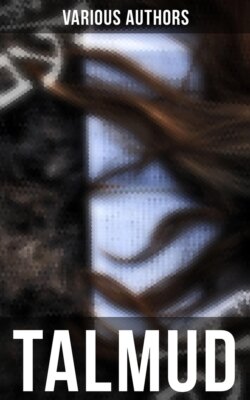Читать книгу TALMUD - Various Authors - Страница 111
На сайте Литреса книга снята с продажи.
CHAPTER III.
ОглавлениеMISHNA I. If the Beth Din and all Israel saw (the moon on the night of the thirtieth day), but there was no time to proclaim, "It is consecrated," before it has become dark, the month is intercalary. When three who formed a Beth Din saw it, two should stand up as witnesses and substitute two of their learned friends with the remaining one (to form a Beth Din). No greater authority than Moses, our master, yet God said to him that Aaron should act with him. No witness of a crime may act as judge, but in civil cases he may, 45-46
MISHNAS II. to IV. Concerning what kind of cornets may be used on New Year's and jubilee days. Some words in the Scripture which the rabbis could not explain, until they heard the people speak among themselves. The cornet used on the New Year was a straight horn of a wild goat, the mouthpiece covered with gold. The jubilee and the New Year's Day were alike in respect to the sounding (of the cornet) and the benedictions, but R. Jehudah's opinion was different. R. Jehudah holds that on New Year's Day the more bent in spirit a man is, and on the Day of Atonement the more upright he is (in his confessions), the better; but R. Levi holds the contrary. "On the fast days two crooked ram's-horns were used, their mouthpieces being covered with silver." According to whom do we nowadays pray: "This day celebrates the beginning of thy work, a memorial of the first day"? It is unlawful to use a cornet that has been split and afterwards joined together. If one should happen to pass by a synagogue, or live close by it and should hear the cornet, he will have complied with the requirements of the law. If one covered a cornet on the inside with gold it might not be used. If one heard a part of (the required number of) the sounds of the cornet in the pit, and the rest at the pit's mouth, he has done his duty. If one blew the first sound (Teqia), and prolonged the second (Teqia) as long as two, it is only reckoned as one. If one who listened (to the sounds of the cornet) paid the proper attention, but he that blew the cornet did not, or vice versa, they have not done their duty until both blower and listener pay proper attention. If special attention in fulfil ling a commandment or doing a transgression is necessary or not. As long as Israel looked to Heaven for aid, and directed their hearts devoutly to their Father in Heaven, they prevailed; but when they ceased to do so, they failed. All are obliged to hear the sounding of the cornet, priests, Levites, and Israelites, proselytes, freed slaves, a monstrosity, a hermaphrodite, and one who is half-slave and half-free. One may not say the benediction over bread for guests unless he eats with them, but he may for the members of the family, to initiate them into their religious duties, 46-52
